City for Conquest

Brief Synopsis
Cast & Crew
Anatole Litvak
James Cagney
Ann Sheridan
Frank Craven
Arthur Kennedy
Donald Crisp
Film Details
Technical Specs

Synopsis
In the East Side slums of New York City, Danny Kenny, his brother Eddie and Peggy Nash, all childhood friends from the tenements, pursue different paths to climb their way out of the gutter. Danny is content driving a truck until his brother, who dreams of writing a symphony of the city, needs money for music school. To earn Eddie's tuition, Danny accepts a boxing match, where he is spotted by fight manager Scotty MacPherson. Meanwhile, Peggy, seduced by the vision of her name in lights, becomes the dance partner of the despotic Murray Burns, and the pair set out on the vaudeville circuit. Desperate to win Peggy back, Danny decides to make something of himself and accepts Scotty's offer to be his manager. As Danny wins bout after bout, Peggy's tour ends, and she agrees to give up dancing for Danny. When the dance team is offered a contract in the big time, however, Peggy foresakes Danny to pursue fame. Danny, confident that winning the championship will win him Peggy, insists on a match with the mean and dirty boxer Cannonball Wales. To make sure that he wins the title, Wales puts rosin on his boxing gloves, thus blinding Danny. As she listens to the match on the radio, Peggy hears of Danny's pummeling, quits the dance team and returns to Danny, only to be sent away by Scotty. Blinded by the fight, Danny feels no self-pity and opens up a newstand. When Eddie, frustrated by his struggle for artistic recognition, is on the verge of selling out his talents, Danny inspires him to keep fighting. Eddie's symphony is finally accepted for performance at Carnegie Hall, and Peggy, now miserable and alone, goes to hear his debut. In a moving speech, Eddie dedicates his work to his brother, and after the concert, Peggy seeks out Danny at the newsstand, and the two are reconciled.

Director

Anatole Litvak
Cast
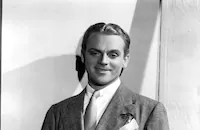
James Cagney
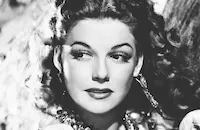
Ann Sheridan

Frank Craven
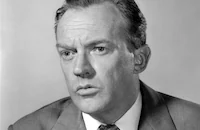
Arthur Kennedy
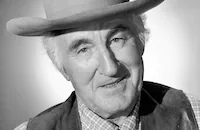
Donald Crisp
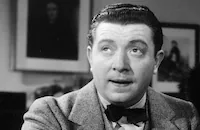
Frank Mchugh

George Tobias

Elia Kazan

Anthony Quinn
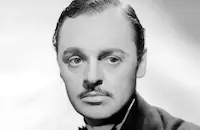
Jerome Cowan
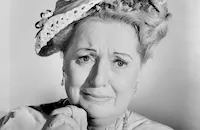
Lee Patrick
Blanche Yurka
George Lloyd
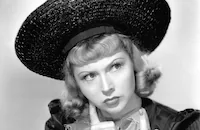
Joyce Compton
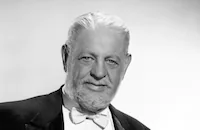
Thurston Hall
Ben Welden

John Arledge
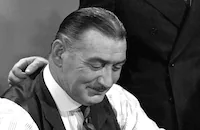
Ed Keane
Selmer Jackson

Joseph Crehan
Crew
E. A. Brown
William Cagney
Leo F. Forbstein
Hugo Friedhofer
Robert Haas
Chuck Hansen
Byron Haskin
Ray Heindorf
William Holmes
James Wong Howe
Frank Mattison
Jean Negulesco
Sol Polito
Irving Rapper
Howard Shoup
Sherry Shourds
Max Steiner
Robert Vreeland
Perc Westmore
John Wexley
Rex Wimpy

Photo Collections
Videos
Movie Clip




Trailer
Film Details
Technical Specs

Articles
City for Conquest - City For Conquest
Cagney plays Danny Kenny, a street-tough truck driver who grows up on Manhattan's Lower East Side with a young woman named Peggy Nash (Ann Sheridan). Danny wants to marry Peggy, but she's hoping to rise to a new station in life, and marrying a trucker isn't likely to do that. In an attempt to impress Peggy, and, not incidentally, earn enough money to send his sensitive brother, Eddie (Arthur Kennedy), to music school, Danny becomes a professional boxer. (Is it just me, or is somebody always taking up prize fighting for money in these movies?) Peggy, for her part, hooks up with a suave lothario named Murray Burns (Anthony Quinn), and becomes a successful dancer. This will lead to a battle for Peggy's heart as well as the kind of life-altering injury that boxers only receive in the movies.
City for Conquest is far more entertaining than it has any right to be. But it might have completely faded into the mists of movie history were it not for one of Cagney's co-stars- a young actor named Elia Kazan, who, of course, would go on to become a groundbreaking stage and screen director. Kazan wrote rather extensively about his work on City for Conquest in his autobiography, Elia Kazan: A Life. During the filming he learned a great deal about on-set politics while observing the battle of wills between Cagney and Litvak.
"The crew liked and respected Cagney," Kazan wrote. "They were off the street too but they didn't like the way Tola spoke to them, and Jimmy didn't either. Tola had an abrupt way of giving orders, was always dominating and impatient with objection and error." Kazan also noted Litvak's unorthodox shooting technique, which consisted of filming as much of the scene as possible in one, catch-all take, via a panning camera that was being pushed on a dolly. This required the actors to hit scores of marks during a single scene. Locating sundry chalk lines on the floor soon began to overtake the all-important rehearsal process, and it drove Cagney to distraction.
Cagney, however, would get his revenge while shooting the picture: "In his quiet way (Cagney) made Tola eat dirt. In the last scene of the film, Jimmy had a heavy scar over one eyebrow, the kind prizefighters acquire. It was carefully put on by a makeup man in the morning." Cagney would work with his usual intensity all day long, but when quitting time approached, he was done. "Toward the end of the afternoon, Cagney, whose contract specified that he was through at five-thirty, would look at his watch, and if, in his opinion Cagney's, not Tola's, not the cameraman's there wasn't enough time to get the shot the electricians were preparing, Jimmy would pull off the scar and so bring the day's work to a close. He'd walk off the set without a word to Litvak."
Kazan grew to admire Cagney while working on the picture. "Jimmy was a completely honest actor," he wrote. "I imagine he'd have figured out each scene at home, what he'd do and how he'd do it, then come to work prepared. But what he did always seemed spontaneous." Kazan viewed Cagney as something of a natural: "He had no schooling in the art of acting, although he had tremendous respect for good actors. If the Actors Studio had existed then, I'm sure he would have despised it...Jimmy didn't see scenes in great complexity; he saw them in a forthright fashion, played them with savage energy, enjoyed his work."
Director: Anatole Litvak
Producer: Anatole Litvak
Associate Producer: William Cagney
Screenplay: John Wexley (based on the novel by Aben Kandel)
Cinematographer: Sol Polito, James Wong Howe
Editor: William Holmes
Music: Max Steiner
Music Director: Leo F. Forbstein
Dialogue Director: Irving Rapper
Art Director: Robert Haas
Dance Director: Robert Vreeland
Special Effects: Byron Haskin, Rex Wimpy
Principal Cast: James Cagney (Danny Kenny), Ann Sheridan (Peggy Nash), Frank Craven (Old Timer), Donald Crisp (Scotty MacPherson), Arthur Kennedy (Eddie Kenny), Frank McHugh (Mutt), George Tobias (Pinky), Jerome Cowan (Dutch), Elia Kazan (Googi Zucco), Anthony Quinn (Murray Burns), Lee Patrick (Gladys), Blanche Yurka (Mrs. Nash), George Lloyd (Goldie), Joyce Compton (Lily), Thurston Hall (Max Leonard).
BW-99m.
by Paul Tatara

City for Conquest - City For Conquest
Quotes
Trivia
Jean Negulesco took over direction of the film for a short period when Anatole Litvak suffered an eye injury.
Notes
According to news items in Hollywood Reporter, Robert Rossen "polished" one version of the scripts for this film and Jean Negulesco assumed the direction of the film when Anatole Litvak suffered an eye injury. Rossen's contribution to the final film has not been determined. This picture marked Arthur Kennedy's screen debut, and Elia Kazan's first screen role.

Miscellaneous Notes
Released in United States 1996
Released in United States Fall September 1940
Released in United States 1996 (Shown in New York City (Film Forum) as part of program "Kazan" November 22 - December 26, 1996.)
Released in United States Fall September 1940














